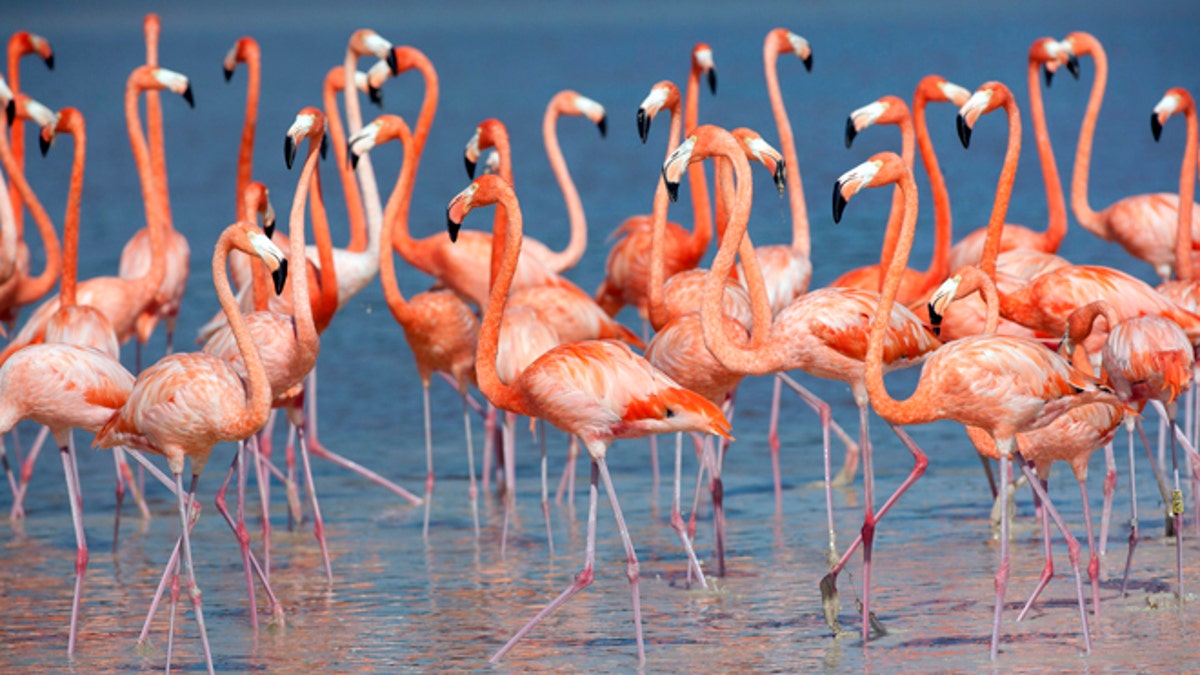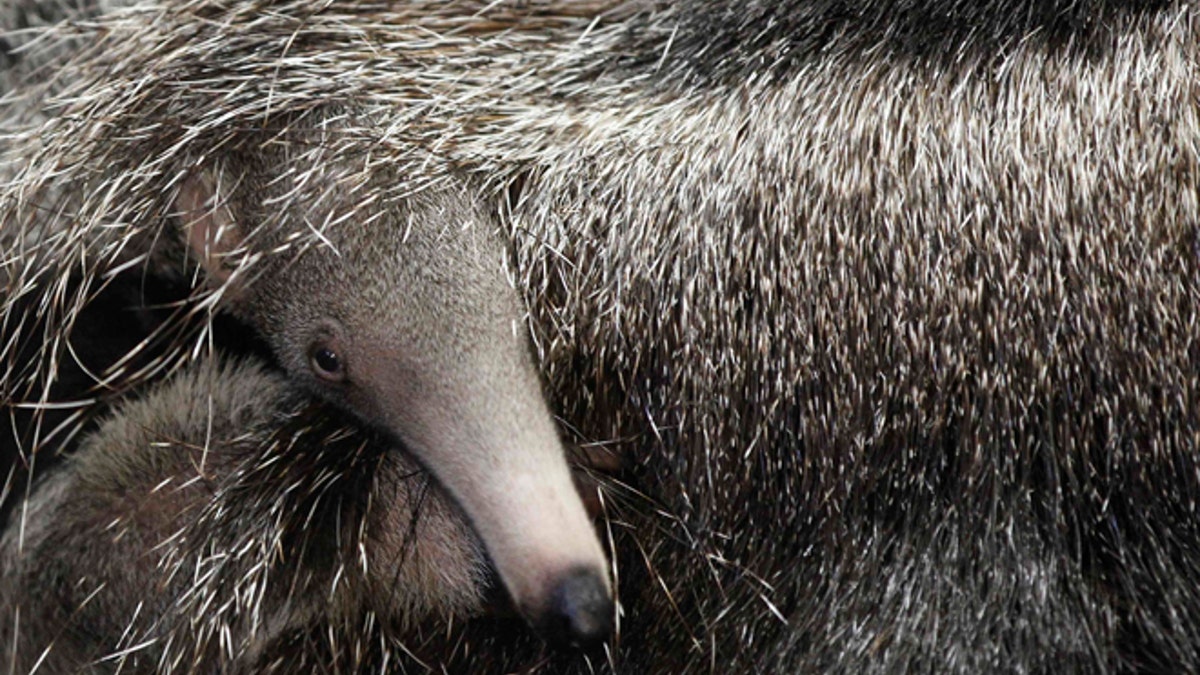
Flamingos stand in the waters of a wetland reserve in Celestun in Mexico's Yucatan Peninsula December 6, 2011. With the world's population of wild flamingos under threat from overdevelopment and illegal trade on the black market, the wetland reserve is thriving with thousands of the pink feathered creatures in search of an ideal winter habitat. According to the Caribbean Flamingo Conservation Program, the estimated 45,000 flamingos that call Mexico's Yucatan state home are an integral part of the travelling bird's regional metapopulation that stretches as far as the Caribbean islands. Picture taken December 6, 2011 REUTERS/Victor Ruiz Garcia (MEXICO - Tags: ENVIRONMENT ANIMALS TPX IMAGES OF THE DAY) - RTR2V26W (Reuters)
Venezuela’s food crisis has gotten so bad that people are apparently killing pink flamingos and other protected animals in order to stave off hunger.
While flamingo hunting is both illegal and uncommon in the South American nation, investigators from Zulia University in the northwestern Venezuelan city of Maracaibo have noted at least 20 cases of bird carcasses being discovered with their breasts and torsos removed.
And flamingos aren’t the only unusual animal to become a victim of Venezuela’s worsening food crisis. Remains of everything from dogs and cats to donkeys and even giant anteaters have been found in garbage bags at city dumps around the country.
“Sometimes we only find the animal’s heads, guts and legs. We used to see this very little in the past, but this practice is now out of control and on the rise,” Robert Linares, a Maracaibo waste disposal worker, told the Miami Herald. Linares added he recently found on the street the remains of a dog that had been skinned and dismembered.
The once-wealthy oil producing nation has fallen on hard times since Nicolás Maduro took power following the death of socialist leader Hugo Chávez in 2013. A drop in global oil prices has crippled the country’s economy and Venezuela has been plagued with the worst inflation rate in the world, close to 700 per cent last year, according to International Monetary Fund.
The collapse of the country’s economy has made it difficult to import basic goods such as food and medicine, created acute shortages and stirred deep-seated anger toward Maduro. A recent study conducted by three universities found that in 2015 87 percent of Venezuelans didn’t have enough money to buy sufficient food for their families.
The lack of food has even earned its own nickname: “The Maduro Diet.”
“We find these killings grotesque, but how can we be critical of someone who hunts a pigeon, a dog, a cat or any animal because he or she is hungry?” Doris Rubio, CEO of the Venezuela-based Animal Protection Association, said to the Herald. “People used to hunt lizards for sport. Now they do it out of necessity.”

A baby giant anteater hides beneath its mother's tail in their enclosure. (Reuters)
Researchers in Venezuela warn that eating animals that are not raised for the purpose of consumption – whether that be a wild flamingo or a stray dog – is extremely dangerous to people’s health as they could possibly host bacteria and viruses that could be deadly.
“In France, they eat horses and in China they eat dogs and cats, but after being raised according to sanitary programs," Hugo Hernández, a veterinary sciences professor in University of Zulia, said. "In our country, these animals are being hunted in the wild or in the streets and cannot be consumed by humans."
In Venezuela, two pounds of sugar or corn flour cost about 7,800 bolivares, or $2 dollars, on the black market, while two pounds of good meat goes for about 10,000 bolivares. Adding these three items together results in a cost that is around half of the country’s official monthly minimum wage of 40,000 bolivares, or $11 dollars.
Besides killing “vulnerable” animals, many Venezuelans have taken to scavenging for discarded items of food to supplement their diet – a move that had previously only been done by the country’s homeless and mentally ill population.
Adding to the overall misery is a drastic rise in violent crime, especially in the capital city of Caracas, rolling blackouts and widespread and often times bloody protests against the government. There have been casualties and deaths on both sides of the protests and accusations from the international community of human rights abuses and political oppression.
“The pressure that Venezuelans face every day is tremendous because of all the uncertainty,” Sonia Schott, the former Washington, D.C., correspondent for Venezuelan news network Globovisión, told Fox News. “Nobody knows what will happen the next day.”




















